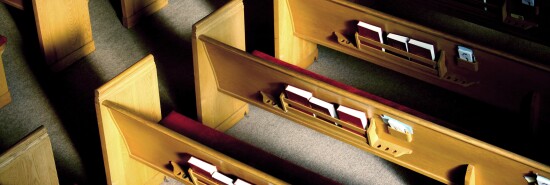
Empty pews, full morgues
Timothy P. Carney
In the 1990s, media elites feared America’s apparently ascendant religiosity, particularly the “evangelicals.” In the 2000s, they cheered the decline of religiosity and the spread of secularism. In the 2010s, the cheers quieted a bit when the more astute began to see what a less religious America looked like.
Deaths of despair are the most startling fruit of America’s secularization. When fewer people go to church, more people overdose on drugs, drink themselves to death, and die by suicide.
MILLIONS OF WOMEN NO LONGER ATTEND CHURCH. THIS AUTHOR OFFERS A REASON TO RETURN
That’s the finding of economists Tyler Giles, Tamar Oostrom, and Daniel Hungerman. The three studied religious attendance, blue laws, and deaths of despair and found they were all connected.
Blue laws restrict all sorts of commerce on the Sabbath, which is Sunday in most of America. When blue laws are repealed, religious attendance falls as people have more alternatives to church: shopping, brunch, entertainment, and so on. Research has shown this effect for years, and the authors say plenty of studies show the causality is one way: Blue-law repeal causes lower attendance, rather than secularization leading to blue-law repeal.
To fine-tune the causal connections further, Giles and his colleagues focused specifically on the non-alcohol-related blue laws.
It turns out that deaths of despair began rising earlier than most researchers assumed — in the early 1990s, which is when blue-law repeal first started making its impact on church attendance. In that time, “the most religious states experienced the lowest mortality due to deaths of despair,” the authors found, and “states that had larger drops in religious attendance had larger increases in deaths of despair.”
Why would declining church attendance lead to more alcohol abuse, more drug abuse, and more suicide?
With no offense to the passionate sermons of Pastor Steve or the fine homilies of Father O’Reilly, the biggest thing lost for the average person who drops out of church is probably community.
For the middle and working classes of America, the central institution of civil society has always been the church. It has been the source of friendships, mentorships, modeling, and guidance. Church is where the typical nonelite members of society have found their opportunity to serve others, as well as a human-level safety net.
CLICK HERE TO READ MORE FROM THE WASHINGTON EXAMINER
If you’ve ever had your freezer overflowing with casseroles after breaking your leg or having a baby, you know this very concretely.
Changes that tear us away from the pews, whether it be opening Main Street or trying to replace church welfare with state welfare, may strike the elites as progress, but they hit ordinary residents as a death sentence.
